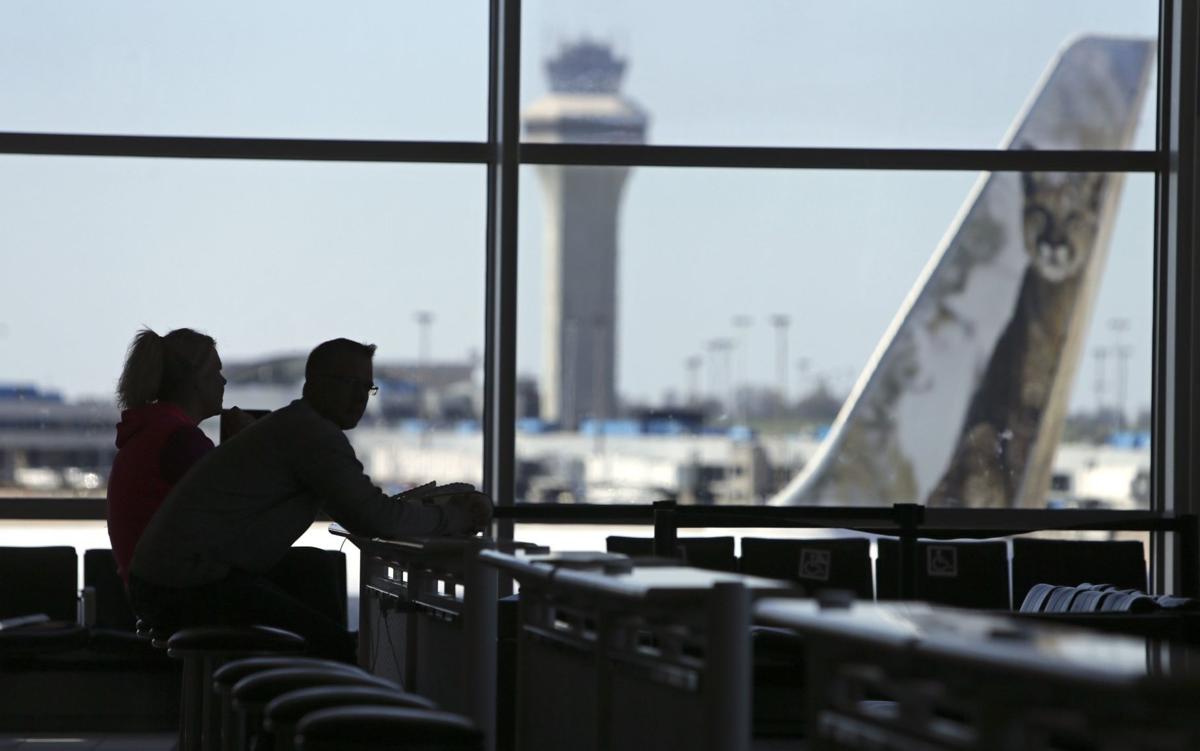My favorite happy hour spot when I lived in Scottsdale, Arizona, was called Downside Risk.
It’s named after an investment term that measures possible losses if the market goes bad.
The name fit.
Downside Risk was a pickup bar. Young men and women, many of them working in the hot internet startup field at the time, where IPOs would come and go, would see a person across the bar they were attracted to and calculate the risk of failure before getting up the gumption to try to buy their new friend a drink or strike up a conversation.
Downside risk — the concept, not the bar — was on the mind of the city’s Airport Commission on Wednesday afternoon. Deputy Mayor Linda Martinez was there to update the commission on the process by which some city leaders are working toward a potential privatization of airport operations.
People are also reading…
The airport commissioners, who said they felt shut out of the process — “We have been in the dark,” said commissioner Lee Kling — had questions about risk.
“Where’s the risk analysis?” asked John Gaal, a retired Carpenters Union official.
“Is this even a good idea?” asked another commissioner.
“What happens if (things go wrong)?” asked Sean Fitzgerald, a vice president at Enterprise Holdings. “This is what businesses do,” he added, saying that a risk assessment should have been one of the first tasks of the airport working group and its passel of well-paid advisers.
Martinez played coy.
“I’m not sure what a risk analysis is,” she said at one point.
The answer didn’t seem to fill the commissioners with confidence.
But never mind that.
Like much of what Martinez’s boss, Mayor Lyda Krewson, promised would be an open and transparent process, this was window dressing.
The airport commission doesn’t have a vote.
Martinez wasn’t dating the commission, seeking to curry their favor, she was shunning their advances.
That was clear when Alderman Marlene Davis, who is on the commission and the airport working group, actually tried to share a bit of information with her fellow commissioners.
The working group is currently sifting through 18 applications from various investment groups all over the world interested in bidding on the potentially lucrative airport lease. That process has been secretive. For instance, the city denied my Sunshine Law request for qualifications submitted by those 18 entities. Those are the documents that indicate what the qualifications of the companies are, and explain their financial backing. There could be interesting information in those documents, such as which companies have massive foreign investment. Might city taxpayers care, for instance, if the underlying investment for some of these groups comes from human-rights violators such as China or Saudi Arabia? How will the city decide which companies are worthy of being considered for privatization?
We don’t know because the city won’t share the documents.
Meanwhile, Davis started to tell the commissioners, the working group has already met with 11 of the investment groups.
Martinez cut Davis off midsentence.
“We aren’t talking about that,” she said.
Of course not.
In this process, Martinez was clear, the information comes out after decisions are made, not before.
And that, the commissioners told the city’s deputy mayor, is the problem.
“We will be a guinea pig,” Kling told her. Because this could be the first full airport privatization in the U.S. mainland, whoever gets the contract is likely to overpay, he suggested, making “the likelihood of failure much higher.”
“None of these makes sense to me right now,” Kling said, echoing the thoughts of several of the airport commissioners. “I don’t think the right hand knows what the left hand is doing.”
Never mind the left hand and the right hand.
In her own presentation, Martinez struggled to get her story straight when it comes to the role risk plays in the privatization equation.
“We cannot have the airport be at risk,” Martinez assured commissioners. So why even start down the privatization runway?
“There’s a lot of capital out there in the world waiting to be invested,” she said. “A private investor can take a risk.”
Those investors see little downside in fleecing a city that only asks its questions behind closed doors.

















